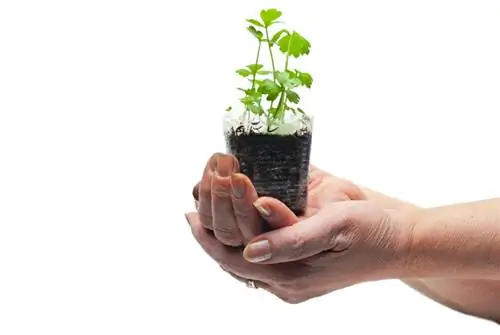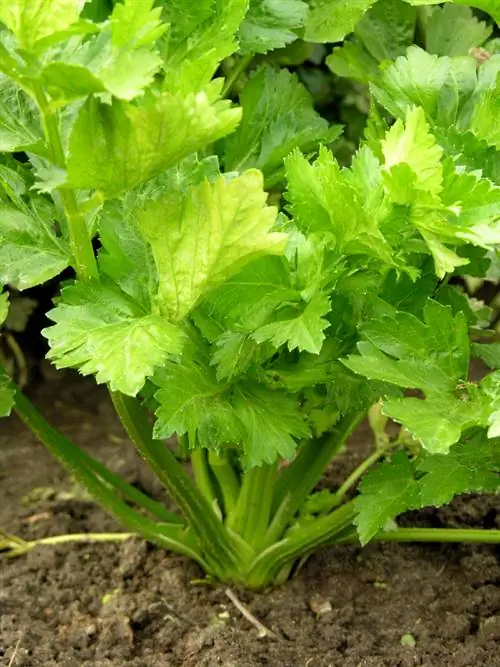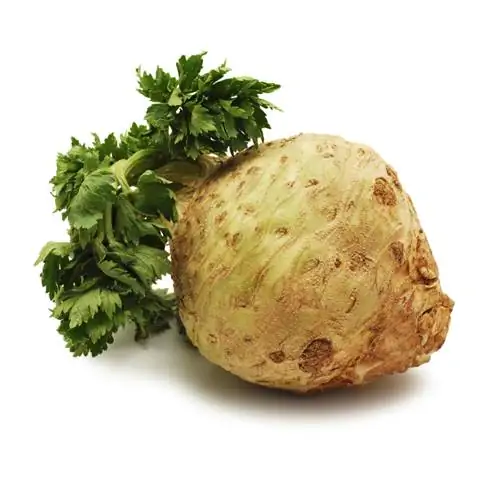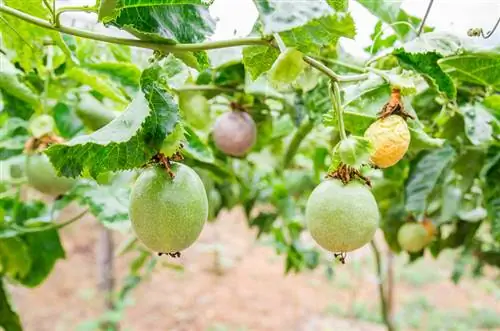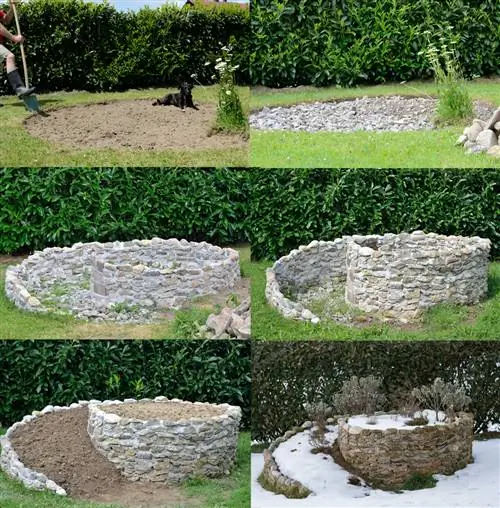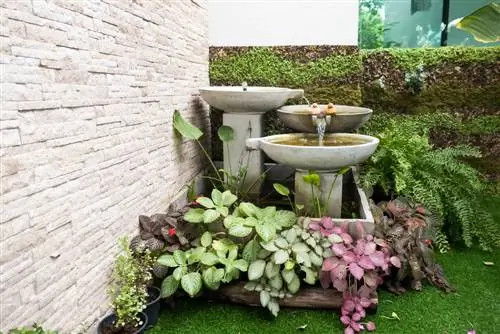- Author admin leonars@hobbygardeners.com.
- Public 2023-12-16 16:46.
- Last modified 2025-01-23 11:19.
It's not just its delicate flavor that makes celery popular as a vegetable. It also contains plenty of vitamins and fiber and is also low in calories. Good reasons to grow the delicate celery yourself in the garden. Celeriac and celery stalks are not sown directly outdoors, but are grown indoors in seed trays.
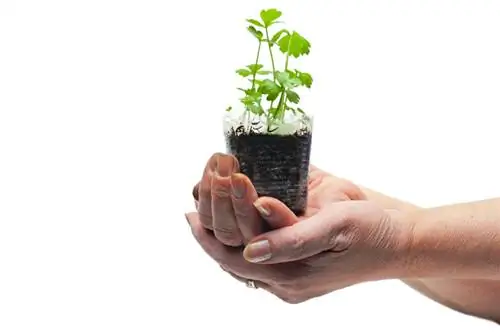
How do I sow celery correctly?
To grow celery from seeds, start in late February to March in seed trays (€35.00 on Amazon) or small pots with loose soil. Press the light-germinating seeds lightly, place them in a bright windowsill at 18-22 °C and water sparingly. Prick out and fertilize strong young plants before they move into the bed from mid-May.
You need:
- Growing trays (€35.00 at Amazon) or small pots
- loose soil
- Seeds
- and a warm place on the windowsill
How to sow seeds indoors
The cultivation of young celery plants begins at the end of February and continues into March. The seeds are sown in seed trays (€35.00 on Amazon) or small pots in loose soil.
Celery is a light germinator, so the seeds are only lightly pressed into the soil. You place the cultivation containers on the bright windowsill; ambient temperatures of 18 to 22 degrees Celsius are ideal. During cultivation, water only sparingly, preferably with a spray bottle.
Pricking out celery plants
Once the first 2 - 3 leaves have developed, prick out at a distance of 4 - 5 cm. Only the strongest plants are left standing.
During the growing period you can supply the small celery plants with liquid fertilizer.
Transplanting into the bed from the end of May
Once the ice saints are over, the celery plants can move into the well-prepared garden bed. The planting distance for the celery is approx. 40 cm.
The heart of the plant should always be left visible at the top so that strong tubers can form. After planting, the celery is watered regularly, especially in dry periods.
Tips & Tricks
Before moving to the vegetable patch, the young celery plants must be hardened off. To do this, the plants are placed outside during the day. Similar to the germination temperatures, the outside temperatures should also be around 18 degrees Celsius to avoid sprouting.

